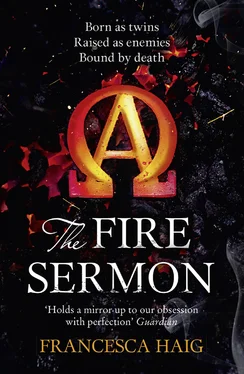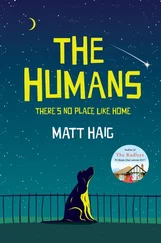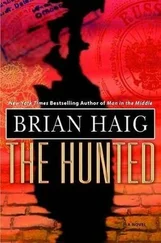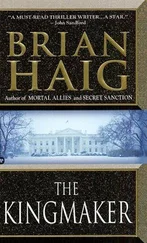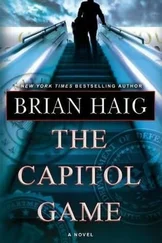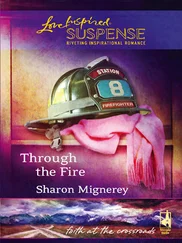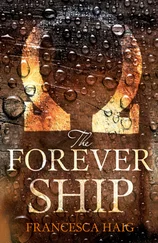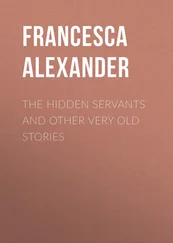Extreme pain, too, or serious illness, would affect both twins. A high fever in one twin would soon peak in the other; if one twin was knocked out, the other would lose consciousness as well, wherever he or she was. Minor injur-ies or sickness didn’t seem to bridge the divide, but severe pain would see one twin wake, screaming, from the other twin’s wound.
When it became clear that Omegas were infertile, it was assumed for a while that they would die out. That they were only a temporary blight, a readjustment after the blast. But each generation since then was the same: all twins, always one Alpha and one Omega. Only Alphas could produce children, but each child they produced came with its Omega twin.
When Zach and I were born, a perfect match, our parents must have counted and recounted: limbs, fingers, toes. The complete set. They would have been disbelieving, though; nobody dodged the split between Alpha and Omega. Nobody. It wasn’t unheard of for an Omega to have a deformation that only became apparent later: one leg that refused to grow in tandem with the other; deafness that passed unnoticed in infancy; an arm that turned out to be stunted or weak. But there were also rumours, all over, about those few whose difference never showed itself physically: the boy who seemed normal until he screamed and ran from the cottage minutes before the roof-beam’s sudden collapse; the girl who wept over the shepherd’s dog a week before the cart from the next village ran it down. These were the Omegas whose mutation was invisible: the seers. They were rare – only one in every few thousand, if that. Everybody knew of the seer who came to the market each month at Haven, the big town downstream. Although Omegas weren’t permitted at the Alpha market, he’d been tolerated for years, lurking at the back of the stalls, behind the stacked crates and the mounds of spoiled vegetables. By the time I first went to the market he was old, but still plying his trade, charging a bronze coin in exchange for predicting next season’s weather to farmers, or telling a merchant’s daughter whom she’d end up marrying. But he was always odd: he muttered to himself steadily, an unending incantation. Once, when Zach and I walked past with Dad, the seer shouted, ‘Fire. Forever fire.’ The stallholders nearby didn’t even flinch – evidently such outbursts were common. That was the fate of most seers: the blast burned its way through their minds, as they were forced to relive it.
I don’t know when I first realised my own difference, but I was old enough to know that it had to be hidden. In the early years, I was as oblivious as my parents. What child doesn’t wake, screaming, from a bad dream? It took a long time for me to understand that there was something different about my dreams. The consistency of my dreams of the blast. The way that I’d dream of a storm that wouldn’t arrive until the following night. How the details and scenes in my dreams extended far beyond my own experience of the village, its forty or so stone houses clustered around the central green with its stone-rimmed well. All I had ever known was this shallow valley, the houses and the wooden barns grouped a hundred feet from the river, high enough up to avoid the floods that drenched the fields with rich silt each winter. But my dreams thronged with unfamiliar landscapes and strange faces. Forts that loomed ten times the height of our own small house with its rough-sanded floors and low, beamed ceilings. Cities with streets wider than the river itself, and swollen with crowds.
By the time I was old enough to wonder at this, I was old enough to know that Zach was sleeping through each night, undisturbed. In the cot that we shared, I taught myself to lie in silence, to calm my frenzied breathing. When the visions came in the daytime, especially the roaring flash of the blast, I learned not to cry out. The first time Dad took us downstream to Haven, I recognised the jostling market square from my dreams, but when I saw Zach hang back and grip Dad’s hand, I imitated my brother’s dumbfounded stare.
So our parents waited. Like all parents, they’d made only a single cot for us, expecting to send one child away as soon as we’d been split and weaned. When, at three, we remained stubbornly unsplit, our father built a pair of larger beds. Although our neighbour, Mick, was known throughout the valley for his skill at carpentry, this time Dad didn’t ask for his help. He built the beds himself, almost furtively, in the small walled yard outside the kitchen window. In the years that followed, whenever my lopsided, ill-made bed creaked I remembered the expression on Dad’s face when he’d dragged the beds into the room, setting them as far apart as the narrow walls would allow.
Mum and Dad hardly spoke to us, anymore. Those were the drought years, when everything was rationed, and it seemed to me that even words had become scarce. In our valley, where the low-lying fields were usually flooded every winter, the river thinned to an apathetic trickle, the exposed riverbed on each side cracked like old pottery. Even in our well-off village, there was nothing to spare. Our harvests were poor the first two years, and in the third year without rain the crops failed altogether, and we lived off hoarded coins. The dried-up fields were scoured by dust. Some of the livestock died – there was no animal feed to buy, even for those with coins. There were stories of people starving, further east. The Council sent patrols through all the villages, to protect against Omega raids. That was the summer they erected the wall around Haven, and most of the larger Alpha towns. But the only Omegas I glimpsed in those years, passing our village on the way to the refuges, looked too thin and weary to threaten anyone.
Even when the drought had broken, the Council patrols continued. Mum and Dad’s vigilance didn’t change, either. The slightest difference between me and Zach was anticipated, seized on, and dissected. When we both came down with the winter fever, I overheard my parents’ long discussion about who had sickened first. I must have been six or seven. Through the floor of our bedroom I could hear, from the kitchen below, my father’s loud insistence that I’d looked flushed the night before, a good ten hours before both Zach and I had woken with our fevers peaking in perfect unison.
That was when I realised that Dad’s wariness around us was distrust, not habitual gruffness; that Mum’s constant watchfulness was something other than maternal devotion. Zach used to follow Dad around all day, from the well to the field to the barn. As we grew older, and Dad became prickly and wary with us, he began to shoo Zach away, shouting at him to get back to the house. Still Zach would find excuses to tail him when he could. If Dad was gathering fallen wood from the copse upstream, Zach would drag me there too, to search for mushrooms. If Dad was harvesting in the maize field, Zach would find a sudden enthusiasm for fixing the broken gate to the next paddock. He kept a safe distance, but trailed our father like an oddly misplaced shadow.
At night I clenched my eyes shut when Mum and Dad would talk about us, as if that would block out the voices that seeped through the floorboards. In the bed against the opposite wall I could hear Zach shift slightly, and the unhurried rhythm of his breathing. I didn’t know if he was asleep, or just pretending.
*
‘You’ve seen something new.’
I scanned the cell’s grey ceiling to avoid The Confessor’s eyes. Her questions were always like this: phrased blankly, as statements, as if she already knew everything. Of course, I could never be sure that she didn’t. I knew, myself, what it was to catch glimpses of other people’s thoughts, or to be woken by memories that weren’t my own. But The Confessor wasn’t just a seer; she used her power knowingly. Each time she came to the cell, I could feel her mind circling mine. I’d always refused to talk to her, but I was never sure how much I succeeded in concealing.
Читать дальше
